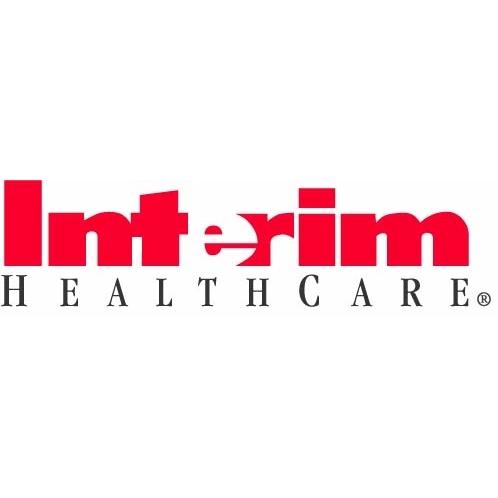We are hiring Personal Care and Residential Care Aides for Full and Part Time Positions. APPLY TODAY!
CAREERS.HIREOLOGY.COM
Interim HealthCare - Appleton, WI
If you have some care-giving experience, you are healthy, reliable, and want to make an impact in your local community, consider picking up a few hours with us at Interim HealthCare to assist the Elderly and Differently Abled.
It will add an element of change to your day and make the difference for those that need your help outside your home.
Keeping your heart golden in your golden years is a must! Make sure to stay clear of processed foods, as they tend to be low in nutrients; providing your body with no real benefit.
Did you know that caffeine can cause spikes in blood pressure, even for people who are not living with hypertension? If your loved one drinks a lot of coffee during the day, consider talking with them about switching to a healthier alternative that will naturally energize the body.
Fulfill your 2020 career goals by joining Interim HealthCare. As an employee, you’ll receive access to hundreds of continuing education courses to grow your skills and advance your career. Learn more on our website: www.interimhealthcare.com/careers/
If you have some care-giving experience, you are healthy, reliable, and want to make an impact in your local community, consider picking up a few hours with us at Interim HealthCare to assist the Elderly and Differently Abled.
It will add an element of change to your day and make the difference for those that need your help outside your home.
Interim HealthCare is hosting a Medication Administration class on October 28th & 29th from 8a-430pm. Please reach out for more information. We have 3 spots currently available.
Are you an experienced caregiver? Interim HealthCare is looking for great staff for In Home and Agency opportunities. Apply today!
CAREERS.HIREOLOGY.COM
Interim HealthCare of the Fox Cities
We are hiring Personal Care and Residential Care Aides for Full and Part Time Positions. APPLY TODAY!
https://careers.hireology.com/interimhealthcare-appletonwi
CAREERS.HIREOLOGY.COM
Interim HealthCare of the Fox Cities
Dietary Tips for Improving Senior Heart Health
By Amy Magill
8 Dietary Tips for Improving Senior Heart HealthKeeping your heart healthy is a must in your golden years. While heart issues can affect anyone, the risk of cardiovascular disease goes up as you get older. In fact, more than 67% of people between the ages of 60–79 years suffer from some form of heart disease. After 80 years of age, that number jumps to greater than 84% of people.
But know that heart problems don’t always have to be a given with age. Leading a healthy lifestyle, including following a nutritious diet, may bring down blood pressure and cholesterol levels, and help you reach or keep a healthy weight. These effects can reduce your risk of heart disease. If you already have a heart condition, it’s not too late to improve your health. Eating a healthy diet may lower your chance of cardiovascular events, such as heart attack, stroke, and heart-disease related death.
Follow these heart-healthy diet tips:
1. Fill up on plants. Plant-based foods include vegetables, fruits, whole grains, beans, and legumes. These whole foods are high in nutrients, including fiber. Fiber can lower the risk of heart disease and may stave off weight gain by helping you feel fuller for longer. Eat a colorful variety of fruits and veggies. Make sure you select grains that are whole, like whole wheat bread, oatmeal, and brown rice.
2. Steer clear of processed foods. Packaged foods tend to be low in nutrients and high in calories, saturated and trans fats, sodium, and added sugars. Excess calories can lead to weight gain, unhealthy fats can raise bad cholesterol, and sodium can increase blood pressure. A heart-healthy diet also limits foods containing added sugar so you can focus on foods that pack more nutrients.
3. Opt for lean sources of protein, such as eggs, beans, seafood, and skinless cuts of poultry. Aim to eat fish that’s rich in omega-3 fatty acids at least twice per week. Try salmon, herring, tuna, and trout. Omega-3 fatty acids appear to promote heart health.
4. Choose fats wisely. Saturated fats are found in animal sources, including fatty cuts of meat and whole-milk dairy products. They’re also in certain tropical oils, like coconut oil. Trans fats are found in processed foods that contain partially hydrogenated oils, such as some baked goods and fried foods. Replace these unhealthy fats with monounsaturated and polyunsaturated fats, which are in many nuts and seeds, canola and olive oils, fatty fish, and avocado. Healthier fats may even lower bad cholesterol levels, and decrease your risk of heart disease.
5. Toss the salt shaker. Adults should have no more than 2,300 mg of sodium per day. Limiting your sodium intake even further, to 1,500 mg per day, may reduce blood pressure more. To control your salt intake, avoid processed foods, use less salt to flavor home cooked foods, and don’t dine out as often.
6. Mind portion sizes. Keeping portion sizes in check can help whittle your waistline, and as a result, your risk for heart disease. Often, packaged foods contain more than one portion per serving, so read nutrition labels closely. Eating dinner off a small salad plate instead of a large dinner plate and sharing entrees at restaurants can also help you cut down on portion sizes.
7. Drink plenty of water. Older adults can be at risk for dehydration. This is due in part to a decreased sense of thirst. So, be sure to drink plenty of water. Staying well hydrated may help keep your heart from working too hard. To make sure you’re getting enough fluids, pay attention to the color of your urine. If it’s clear or pale, you’re likely hydrated. If it’s darker, you should drink more liquids.
8. Curb your alcohol intake. Alcohol may raise your blood pressure and triglyceride levels. Plus, alcoholic beverages add unnecessary calories to your diet. If you choose to drink alcohol, do so in moderation. Women should have no more than one drink per day. Men shouldn’t have more than two drinks each day.
Amy Magill, MA, RD, LDN is Manager of Clinical Programs at Walgreens, where you can find omega-3 supplements, such as krill oil, to contribute to heart health. Amy enjoys educating others about the role diet plays in cardiovascular wellbeing, especially as they age.
Although it is intended to be accurate, neither Walgreen Co., its subsidiaries or affiliates, nor any other party assumes for loss or damage due to reliance on this material. Walgreens does not recommend or endorse any specific tests, physicians, products, procedures, opinions, or other information that may be mentioned in the article. Reliance on any information provided by this article is solely at your own risk.
Sources:
Statistical fact sheet 2015 update: Older Americans and cardiovascular disease. American Heart Association.
https://www.heart.org/idc/groups/heart-public/@wcm/@sop/@smd/documents/downloadable/ucm_472923.pdf
The American Heart Association’s diet and lifestyle recommendations. American Heart Association.
http://www.heart.org/HEARTORG/HealthyLiving/HealthyEating/Nutrition/The-American-Heart-Associations-Diet-and-Lifestyle-Recommendations_UCM_305855_Article.jsp#.WXdWVvkrLq4
Mediterranean diet helps protect against heart attack and stroke. American College of Cardiology.
https://www.cardiosmart.org/News-and-Events/2016/06/Mediterranean-Diet-Helps-Protect-Against-Heart-Attack-and-Stroke
10 tips: Choosing healthy meals as you get older. U.S. Department of Agriculture. https://www.choosemyplate.gov/ten-tips-choosing-healthy-meals-you-get-older
Dietary Guidelines for Americans, 2015-2020, Eighth Edition. Office of Disease Prevention and Health Promotion, U.S. Department of Health and Human Services. https://health.gov/dietaryguidelines/2015/resources/2015-2020_Dietary_Guidelines.pdf
Threapleton, DE, Evans, CEL, Nykjaer, C, et al. Dietary fibre intake and the risk of cardiovascular disease: systematic review and meta-analysis. British Medical Journal. 2013; 347:f6879.
http://www.bmj.com/content/347/bmj.f6879
Staying hydrated – staying healthy. American Heart Association. http://www.heart.org/HEARTORG/HealthyLiving/PhysicalActivity/FitnessBasics/Staying-Hydrated---Staying-Healthy_UCM_441180_Article.jsp#.WXdynfkrLq4
Fats: The good, the bad, and the ugly. American Heart Association.
http://www.heart.org/HEARTORG/HealthyLiving/HealthyEating/Nutrition/FATS-The-Good-the-Bad-and-the-Ugly-Infographic_UCM_468968_SubHomePage.jsp
Omega-3 fatty acids. National Institutes of Health.
https://ods.od.nih.gov/factsheets/Omega3FattyAcids-HealthProfessional/
We are always looking for those up for a HealthCare career!
https://ihcmadeforthis.com/
IHCMADEFORTHIS.COM
Interim Recruiting – what will your story be?
We are looking for a great Office Manager and Client Care Coordinator to tackle a challenging but rewarding opportunity.
CAREERS.HIREOLOGY.COM
Office Manager and Client Care Coordinator









